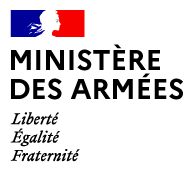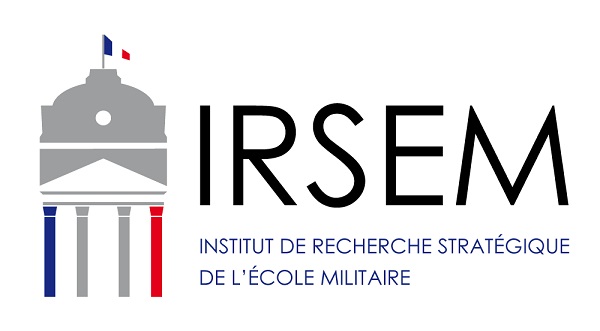Dowlnoad Strategic Brief No. 64
Russia’s nuclear blackmail: Mere strategic intimidation?
Céline Marangé, PhD.
At the start of the invasion of Ukraine in 2022, the Russian authorities regularly voiced threats of nuclear escalation. These threats had initially subsided, before vehemently resurfacing in June 2023. While they are used as a dissuasive tool against Western countries, they also reflect an evolution in Russia’s nuclear posture.
At the most recent Valdai forum, Fyodor Lukyanov asked Vladimir Putin about his readiness to resort to nuclear power, reminding him of the words he uttered during the 2018 forum: “As martyrs, we will go to heaven and they will just croak.” Lukyanov was intrigued by the Russian president’s new answer and asked him to clarify: “We’re not in a hurry [to go to heaven], are we? You took some time to reflect on it, which incites people to be on their guard.” Putin tauntingly retorted, “I deliberately took some time to think so that you’d be on your guard. The effect has been achieved.” This exchange – reported by Russian newspaper Vedomosti and deleted from the verbatim published on the Kremlin’s website – shines a spotlight on the issue of intentionality. How much credence should be given to nuclear threats emanating from the highest levels of state, including those made by former president Dmitry Medvedev?
Western countries generally consider it unlikely for Russia, which opted out of the New Start Treaty in February 2023, to carry out a nuclear strike. Andrey Baklitskiy – a Russian nuclear expert and a member of UNIDIR – explained that the West is convinced that such a move would cause too much death and destruction, entail risks of retaliation and reputational damage, with no guarantee of securing Russia’s victory in Ukraine.
In June 2023, leading Russian experts with an intelligence background and ties to the Kremlin explained that it was urgent to restore the fear of nuclear escalation, by carrying out a tactical nuclear strike and/or reserving the right to strike Western countries directly.
In an article titled “A Difficult but Necessary Decision”, Sergey Karaganov – who co-founded the Council for Foreign and Defense Policy (SVOP) in 1992, before going on to create the Valdai forum and found the journal edited by Lukyanov – advocated the use of a pre-emptive tactical nuclear strike. His justifications took on eschatological overtones: “By breaking the West’s will to continue the aggression, we will not only save ourselves and finally free the world from the five-century-long Western yoke, but we will also save humanity. By pushing the West towards a catharsis and thus its elites towards abandoning their striving for hegemony, we will force them to back down before a global catastrophe occurs, thus avoiding it. Humanity will get a new chance for development.”
In a response titled “Conflict in Ukraine and Nuclear Weapons”, Dmitry Trenin – Director of the Carnegie Moscow think-tank for the last 20 years, up until February 2022 – favored strategic arguments. He proposed sending an “unambiguous and non-verbal” message to Western countries to show that Russia would not play by its adversaries’ rules. He added: “As for possible Russian nuclear strikes on NATO countries, hypothetically speaking, Washington is unlikely to respond to these strikes by attacking Russia for fear of its retaliation against the United States.” These actions would therefore help “dispel the myth built for decades around Article 5” on the topic of collective defense and “lead to the deepest crisis in NATO, perhaps even to its collapse.”
Published on the eve of the NATO summit in Vilnius, these remarks – including mentions of nuclear weapons being stationed in Belarus – undoubtedly constituted an act of strategic intimidation. Its aim was to finally persuade Washington and Berlin to prevent a Membership Action Plan (MAP) or other guarantees of future NATO membership from being granted to Ukraine. These comments were made at a time when the representatives of the Ukrainian and Baltic capitals – joined by Paris in a remarkable about-face – were arguing in favor of these gestures towards Ukraine. However, these remarks also shine a light on the state of the debate within Moscow’s inner circles. Ivan Timofeev, the new Director of the RIAC, immediately published “A Preemptive Nuclear Strike: No!” What’s more, IMEMO researchers and Lukyanov himself felt it necessary to voice their opposition right away, thereby sounding yet another alarm.
In addition to this series of arguments, some of Russia’s most prominent strategic experts became alarmed by the implications of this nuclear rhetoric. In an article titled “The Ukrainian Crisis and Strategic Stability” published in the summer of 2022, academician Aleksey Arbatov – who has worked on the topic of arms control for the last 35 years – examined all of Vladimir Putin’s nuclear-related statements since the invasion of Ukraine. Arbatov, whose father Georgi Arbatov was a close adviser to Mikhail Gorbachev, recalled that, in the early days of the Perestroika, the quest for strategic stability consisted in establishing strategic relationships that would ward off anything that might lead to a nuclear first strike.
At the end of his article, which pointed to a letup in Russia’s recent nuclear rhetoric, Arbatov half-heartedly alluded to the worst-case scenario, i.e. nuclear escalation, as a plausible possibility. He mentioned a broadening of the parameters that justify the use of nuclear weapons, as well as an extension of the notion of “the very existence of the state [being] threatened”. Judging by his words, the Russian president might resort to using nuclear weapons if NATO were to become directly involved in Ukraine, in response to “illegitimate economic sanctions”, or following arms deliveries or “aggressive statements”. The recent delivery of F-16s was therefore perceived as a “nuclear threat”.
Let us remember that Russia abandoned the “no-first-use” commitment in the first post-soviet military doctrine of November 1993. According to its 2014 military doctrine, which is still in effect in 2023, first use applies “if the enemy uses nuclear or other weapons of mass destruction against the territory of the Russian Federation and (or) its allies” and in the event of “the very existence of the state” being jeopardized when “aggression is committed against the Russian Federation with the use of conventional weapons”. According to Russia’s 2020 nuclear doctrine, this type of response also applies in the event of strikes against “critical state or military facilities of the Russian Federation, the damage of which will disrupt retaliatory actions by nuclear forces” (paragraph 19в), i.e. cyber-attacks or other types of attack targeting the Russian strategic forces’ command systems.
Arbatov also made it clear that the decision to use nuclear weapons belongs to the President “at his sole discretion”. This statement contradicts what is sometimes asserted – with disconcerting certainty – by French nuclear specialists who are unfamiliar with the workings of the Russian regime. Therefore, one of the main issues consists in determining whether V. Putin considers that the loss of annexed territories in Ukraine, or any form of defeat “against the West”, threatens “the very existence of the state”.
Israeli professor Dmitry Adamsky, author of the acclaimed book Russian Nuclear Orthodoxy, also expressed his concerns. In an article boasting the eloquent title “Russia’s New Nuclear Normal”, he noted the emergence of two phenomena since the invasion of Ukraine: the role of nuclear power being redefined within Russia’s deterrence doctrine, due to the weakening of its conventional forces; and, in parallel, an increase in nuclear threats in public debate and popular culture in Russia.
Day after day, in successive news and television debates, calls for the ultimate sacrifice and a nuclear apocalypse have become commonplace. A Russian opposition media outlet has produced an edifying anthology of these ominous assertions. It includes footage of a pop singer, accompanied by the orchestra of the Russian strategic forces, raving about the Sarmat intercontinental ballistic missile. The song goes: “From Russia, motherland, the little Sarmats [“sarmatushki”] look far into the distance at the little United States [“Shtatushki”]”.
While giving in to nuclear blackmail remains out of the question, it would also be unreasonable – due to the mere notion of nuclear escalation being unthinkable, immoral, irrational and risky – to ignore how the modalities and objectives of Russia’s strategic signaling have evolved since February 2022. Let us not comfort ourselves in thought patterns that will only delay the adequate amount of planning that is required at all levels. Let us acknowledge that Russia’s considerable human and material losses in Ukraine increase the risk of vertical escalation, and that a Russian tactical nuclear strike would, at least initially, have the staggering and paralyzing effect that Russia seeks. We must face the fact that Russia’s popular opinion is conditioned to accept nuclear strikes, while popular opinion in the West is in no way prepared for it. We must also admit that, since Wagner’s mercenaries marched on Moscow, threats of force have been compounded by the risks of weakness, thereby furthering the Kremlin’s nihilistic temptations.
Céline Marangé, PhD. is a Researcher specialized in Russia and Ukraine at IRSEM.
Contact: celine.marange@irsem.fr



